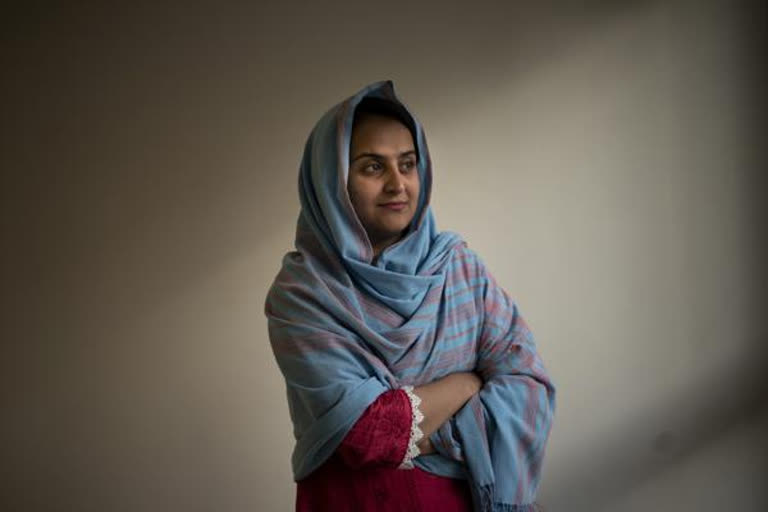Dubai (UAE):Afghanistan’s most popular private television network has voluntarily replaced its risque Turkish soap operas and music shows with tamer programs tailored to the country’s new Taliban rulers, who have issued vague directives that media must not contradict Islamic laws or harm the national interest.
Still, independent Afghan news stations are keeping female presenters on the air and testing the limits of media freedom under the group, whose militants have killed journalists in the past but have promised an open, inclusive system since coming to power in August.
As the world watches intently for clues on how the Taliban will govern, their treatment of the media will be a key indicator, along with their policies toward women. When they ruled Afghanistan between 1996-2001, they enforced a harsh interpretation of Islam, barring girls and women from schools and public life, and brutally suppressing dissent.
Since then, Afghanistan has seen a proliferation of media outlets, and women made some strides within the restrictions of the deeply conservative society.
In a first sign the Taliban are trying to soften their extremist reputation, one of its officials unexpectedly walked into the studios of the privately owned Tolo News just two days after taking control of Kabul in mid-August. He sat down for an interview with the female anchor, Behishta Arghand.
The 22-year-old anchor told The Associated Press that she was nervous when she saw him enter the studio, but his behavior and how he answered questions helped put her at ease a bit.
“I just said to myself this is a good time to show for all the world, Afghan women don’t want to go back. They want... to go forward,” she said.
Arghand fled the country after the interview, unwilling to take any chances about the Taliban’s promises of greater openness. She is temporarily in a compound in Qatar for Afghan refugees.
She is among hundreds of journalists — many seen as the best in their field — who left the country after the Taliban takeover, part of an exodus of more than 100,000 Afghans.
Yet her interview with the Taliban official marked a notable shift from the militants’ first time in power when women had to cover themselves from head to toe and were stoned to death in public for adultery and other alleged offenses.
This time, the Taliban shared video of girls going to school in the provinces. They also have held news conferences after taking control of Kabul, fielding questions from local and international media.
Saad Mohseni, the CEO and chairman of Moby Group, which owns Tolo News, said he believes the Taliban are tolerating the media because they understand they have to win hearts and minds, convince the political establishment to play a role and consolidate their rule.
“The media is important to them, but what they do to the media in a month or two months’ time remains to be seen,” he said from Dubai, where Moby Group has an office.
Although the U.S. and its allies failed to create a stable democracy in Afghanistan, they did succeed in creating a thriving press, said Steven Butler, Asia program coordinator for the Committee to Protect Journalists. The U.S. government spent huge sums of money on the project as the foundation of democracy, he noted on CPJ’s website.
Read: Taliban rule won't last long in Afghanistan, says Amrullah Saleh
Initial U.S. grants helped launch Tolo, which began as a radio station in 2003 and rapidly expanded to television. The Pashto- and Dari-language broadcaster employs 500 people and is the most-viewed private network in Afghanistan.
